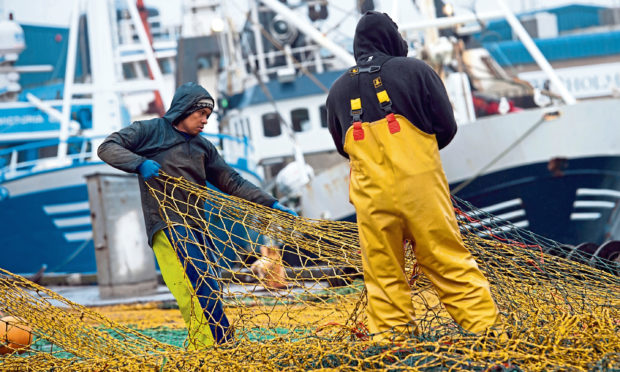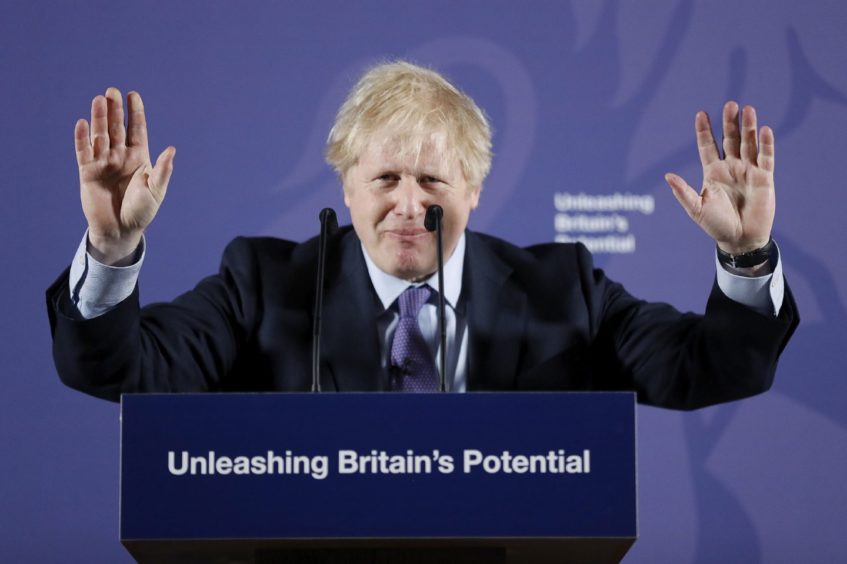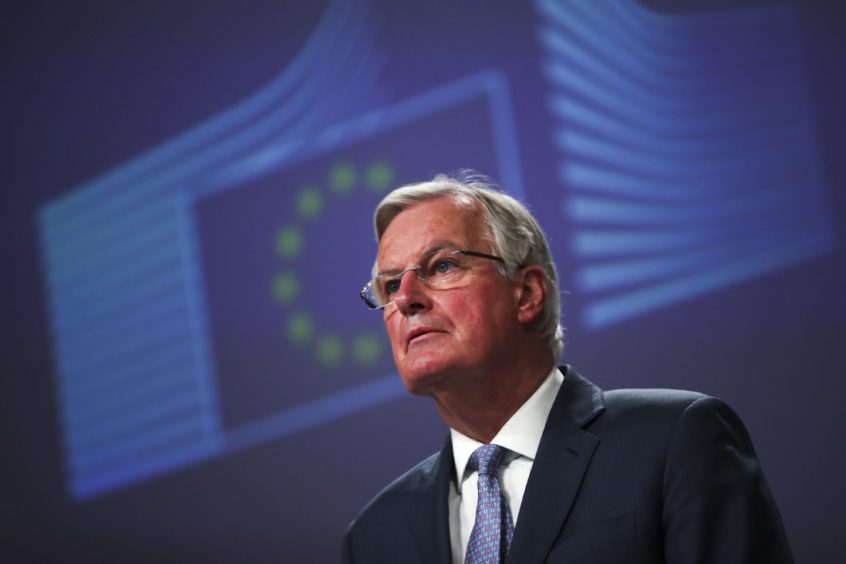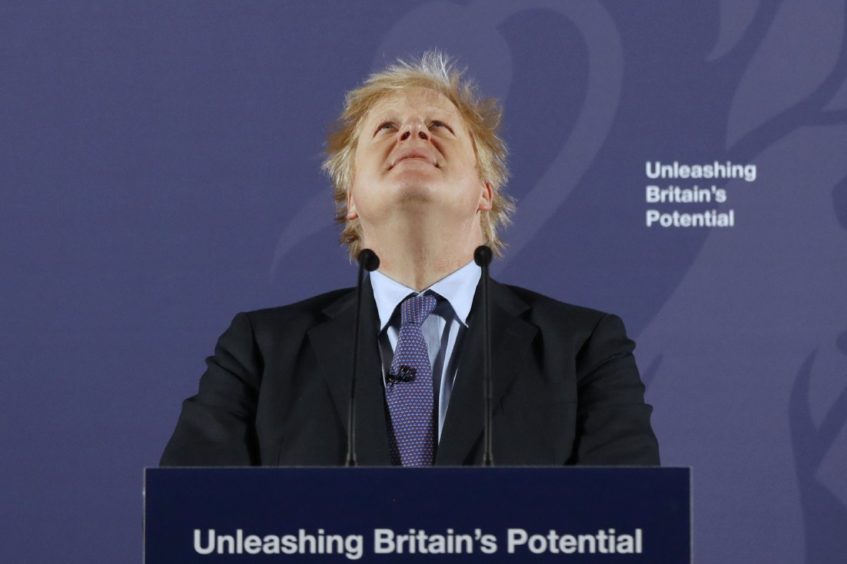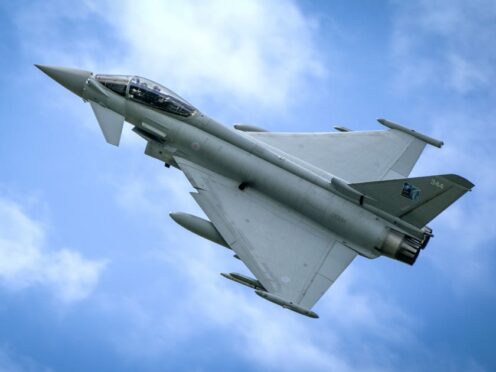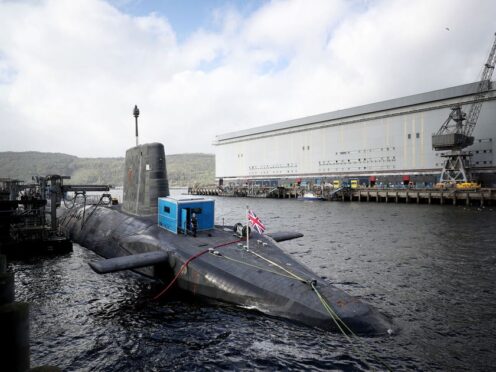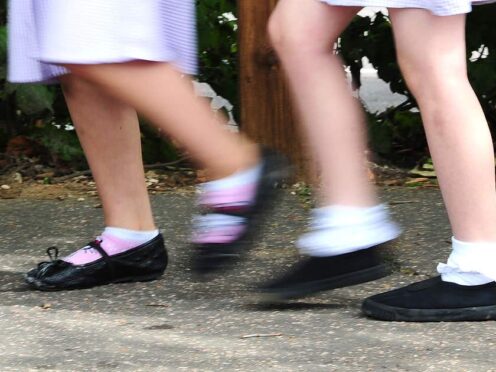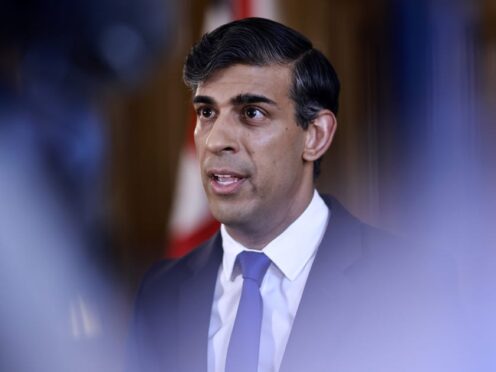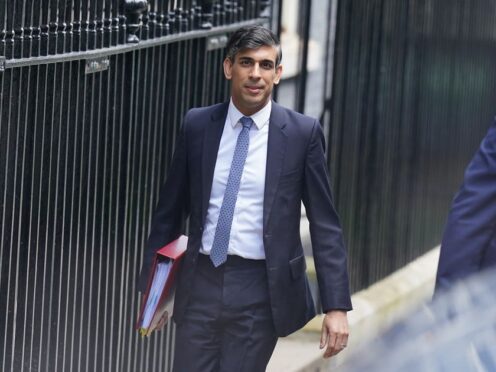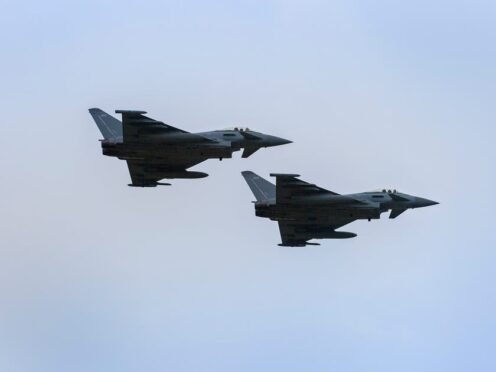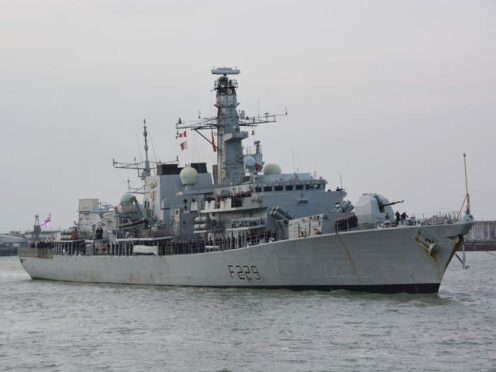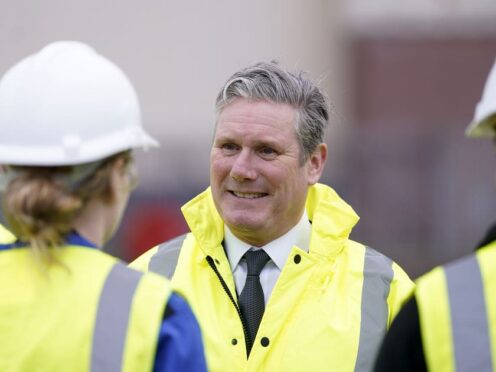Boris Johnson has told the European Union that UK waters will be “first and foremost for British boats” ahead of a gruelling 11-month trade negotiation.
Mr Johnson, in a speech in London this afternoon, said he was “ready to consider an agreement on fisheries”, but made clear that Britain will, like Norway, have annual negotiations on access to waters.
The issue is likely to prove one of the major sticking points in the trade talks to come, as the EU has already made “reciprocal access” to waters a key part of any wider trade deal.
Michel Barnier, the EU’s chief Brexit negotiator, reiterated that point this morning, telling the EU Commission that any UK/EU agreement “should provide for continued reciprocal access to markets, and to waters, with stable quota shares”.
Fisheries is just one area of disagreement however, as the prime minister also dismissed demands from the EU for a “level playing field” on areas like workers’ rights, the environment, tax and state aid.
Setting out his demands, Mr Johnson said: “There is no need for a free trade agreement to involve accepting EU rules on competition policies, subsidies, social protection, the environment or anything similar, any more than the EU should be obliged to accept UK rules.
“The UK will maintain the highest standards in these areas, better in many respects than those of the EU, without the compulsion of a treaty.”
He added: “We want a comprehensive free trade agreement similar to Canada’s, but in the unlikely event that we do not succeed then our trade will have to be based on our existing withdrawal agreement with the EU.
“The question is whether we agree a trading relationship with the EU comparable to Canada’s or more like Australia’s and I have no doubt that in either case the UK will prosper mightily.”
Mr Barnier insisted the EU was ready to make an “exceptional offer” for a comprehensive deal, but that it was conditional on competition remaining “open and fair” with “specific and effective guarantees” to ensure a level playing field over the long term.
“That means mechanisms to uphold the high standards we have on social, environmental, climate, tax and state aid matters,” he said.
Mr Barnier also insisted the UK must agree a role for the European Court of Justice (ECJ) if it wants to agree a new binding security partnership with the EU, but Mr Johnson suggested there was “no need” for a new treaty in many of these areas.
The Confederation of British Industry (CBI) raised fears that businesses could well be caught in the crossfire during the trade talks.
CBI president John Allan said industry optimism was returning but warned that talk of a “bare bones” trade deal could “pause” investment.
“The challenge is to ensure business confidence is not caught in the crossfire of a tough, public negotiation,” he said.
Analysis: Boris and Michel lock horns as the hard work begins
Three days after the UK left the EU, on paper at least, the work to make Brexit a reality really begins.
Until December 31 the UK will be in the “transition period”, meaning little will actually change while Brussels and London attempt to agree a future trading relationship.
If an agreement is not reached by July 1 this year, the last time at which the EU can extend the transition period, the UK will leave the EU without a deal at the end of the year.
Today, both Boris Johnson and Michel Barnier set out their visions for a post-Brexit trading relationship and already a number of flashpoints have emerged.
Below we take a look at some of the key areas of disagreement:
Fisheries
What the EU says: Besides the cooperation on conservation, management and regulation, the objective of the provisions on fisheries should be to uphold Union fishing activities. In particular, it should aim to avoid economic dislocation for Union fishermen that have traditionally fished in the United Kingdom waters. To reach this objective, the provisions on fisheries should build on existing reciprocal access conditions, quota shares and the traditional activity of the Union fleet.
What the UK says: The UK will become an independent coastal state at the end of 2020 and any agreement must reflect this reality. The UK will, like Norway, Iceland and the Faroe Islands, have annual negotiations with the EU on access to waters and fishing opportunities, and will consider a mechanism for cooperation on fisheries matters.
What does it mean?: The EU has made fisheries a key part of the talks and has tied the issue into wider negotiations, meaning if an agreement on fishing is not reached the whole deal could be jeopardised. The fishing sector accounts for about 0.1% of the UK’s economy as a whole and fears have been raised that fishermen could end up being thrown overboard if it means securing a wider deal, the prime minister’s words today will provide reassurance but this issue will run and run.
EU standards
What the EU says: The UK can have a zero-tariff, zero-quota, free trade agreement in exchange for maintaining EU standards on workers’ rights, environmental protection and state aid.
What the UK says: There is no need for a free trade agreement to involve accepting EU rules on competition policies, subsidies, social protection, the environment or anything similar, any more than the EU should be obliged to accept UK rules.
What does it mean?: Boris Johnson’s argument here is that the UK surpasses the EU in protecting animal welfare and workers’ rights, so there is no need for formal alignment. That argument may hold at this present time, but the EU will be looking more long term. If Mr Johnson does indeed want a trade deal with the US, for example, then what will the UK have to accept in return? And will that see a lowering of standards? Cue the chlorinated chicken debate.
Gibraltar
What the EU says: Gibraltar will not be included in the territorial scope of the agreements to be concluded between the Union and the United Kingdom.
What the UK says: In its negotiations with the EU, the Government will be acting on behalf of the UK Crown Dependencies and Overseas Territories: the whole UK family.
What does it mean?: British sovereignty over Gibraltar was formalised by the treaty of Utrecht in 1713 but Spain has always bristled at the idea of UK ownership. The EU and UK could reach separate agreements on Gibraltar, but this will require approval from Madrid.
European courts
What the EU says: The European Court of Justice “should be able to continue its role in full” arbitrating on matters of data sharing and extradition.
What the UK says: Downing Street insists there is no need for ECJ oversight of its trade deal.
What does it mean?: This area has been left vague by both sides, the Tories are very resistant to the ECJ having any oversight of the UK after the transition ends. A new arbitration body to determine disputes could well have to be created.
Do the sides agree on anything?
Both Boris Johnson and Michel Barnier have spoken optimistically of their desire to reach an agreement, but both have acknowledged the process could end without a deal.
It was an opening that many expected, with both pitching their preferred trade deals. As we have discovered in the last three years, what will be concluded will likely be a compromise somewhere in between.
